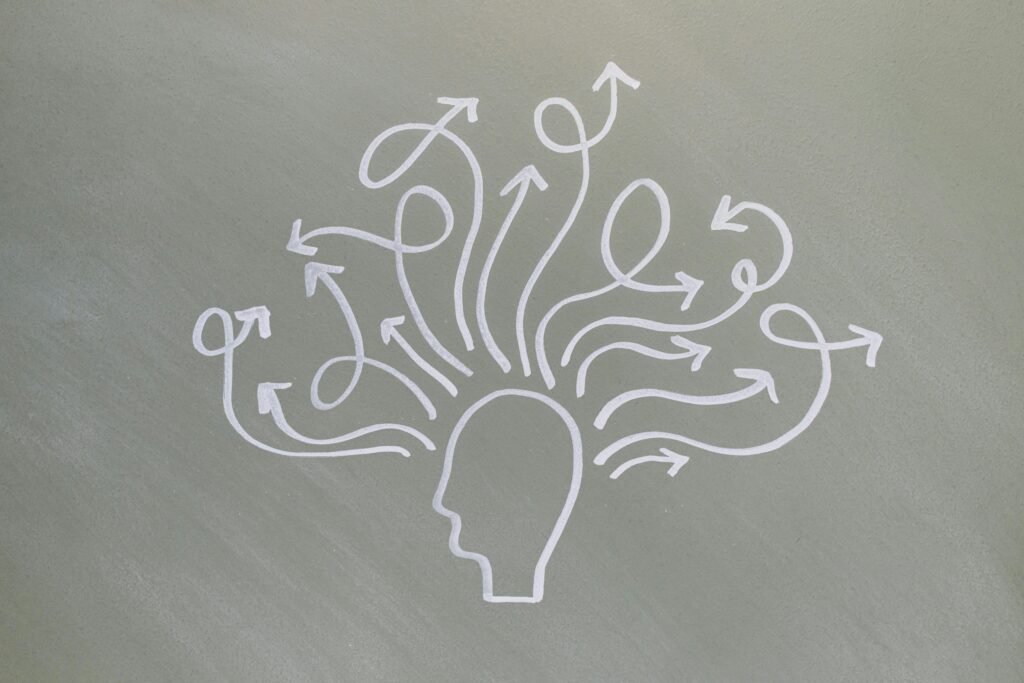
Introduction to Desire vs Ownership
Ever noticed how the excitement of wanting something can sometimes feel way more intense than actually having it?
It’s not just you; there’s some real psychology behind this.
When you desire something, your brain’s reward system kicks into high gear.
Think about the last time you really wanted something, like the latest phone or planning a big vacation.
The anticipation leading up to it felt amazing, right?
But once you finally got it, the thrill didn’t last as long as you thought it would.
This is all part of the psychology of desire vs possession.
When you’re in the stage of wanting, your brain releases dopamine, which makes you feel good.
This surge of excitement creates a kind of emotional high that’s hard to maintain once the item or experience becomes a regular part of your life. It’s like the buildup is more fun than the actual event.
For example, waiting for a package you ordered online can be super exciting.
Checking the tracking updates, imagining how you’ll use the item, it all adds to the thrill.
But once it arrives, that initial joy fades pretty quickly.
You might even find yourself looking for the next thing to want.
And it’s not just stuff. Think about relationships.
The early days of dating, with all the butterflies and excitement, often feel more exhilarating than the comfort of a long term relationship.
The same goes for big life goals.
The journey of working towards something, like running a marathon or starting a new project, can be more rewarding than actually crossing the finish line.
In a nutshell, the psychology of desire vs possession helps explain why the chase can feel more fulfilling than the catch.
Understanding this can make us more mindful of how we handle our wants and needs.
The Science of Anticipation

Anticipation is a big deal when it comes to how our brains work.
It’s all about the thrill of what’s to come, and it can actually make us feel happier than the actual event itself.
When you’re looking forward to something, like a new phone or a vacation, your brain releases dopamine, which is the “feel-good” chemical.
This bump in dopamine gives you a temporary high, making the wait super exciting.
Think about online shopping.
The moment you click “buy,” you start checking your email for shipping updates, tracking every move of your package.
The wait feels like a countdown to a mini celebration.
But when the package finally arrives, the excitement often fades quickly.
You might find yourself already thinking about the next thing you want to buy.
It’s not just about material things. Planning a vacation can be another example.
The research phase, looking at pictures, reading reviews, and daydreaming about your itinerary can be just as satisfying, if not more, than the trip itself.
You imagine all the fun you’ll have, but sometimes the actual vacation doesn’t match up to your expectations.
Anticipation can also play a big role in our personal lives.
Waiting for a big life event, like a wedding or the birth of a child, fills you with excitement and joy.
But once the event is over, you might feel a little let down, even if everything went perfectly.
In simple terms, our brains love the thrill of the chase more than the catch.
It’s the anticipation that keeps us going, looking forward to what’s next, and that’s a key part of why desiring something often feels better than actually having it.
Hedonic Adaptation Explained

Hedonic adaptation is that thing where you get used to new stuff super quick, and it stops making you as happy as it did at first.
Basically, we all have a baseline level of happiness, and no matter how amazing or awful something is, we eventually get back to that baseline.
Ever gotten a new gadget and thought, “This is the best thing ever!”? But then, a few weeks in, it’s just another part of your daily routine.
That’s hedonic adaptation in action.
The same thing happens with bigger life changes.
Think about getting a new job or moving to a new city.
At first, it’s all excitement and new experiences, but eventually, it just becomes your new normal.
This can explain why people are always chasing after the next big thing.
We crave that initial high, that rush of excitement, but because of hedonic adaptation, the joy doesn’t last.
So, we move on to the next desire, hoping to recapture that feeling.
Interestingly, this is why some people find themselves in a cycle of wanting.
They buy something new, enjoy it for a bit, and then find themselves wanting something else.
It’s not that the new stuff isn’t good; it’s just that our brains are wired to normalize everything after a while.
Even experiences are subject to this.
Remember that amazing vacation you took?
The build-up was thrilling, but once you were back home, it became a fond memory rather than a lasting source of joy.
Hedonic adaptation doesn’t mean we should stop seeking new experiences or things.
It just helps to know that the initial excitement will fade, and that’s totally normal.
Being aware of this can help manage expectations and appreciate the fleeting joy of new experiences or items while they last.
The Role of Imagination in Desire

Imagination has a huge impact on why we want things so much.
Our brains are pretty awesome at creating vivid pictures of what life would be like if we had that new gadget, car, or dream job.
We tend to see only the good stuff, making it seem like owning these things will be absolutely perfect.
Think about how you might daydream about a beach vacation.
In your mind, it’s all sunshine, clear waters, and relaxing with a good book.
But when you actually get there, you might face crowded beaches, sunburn, or even bad weather.
The reality rarely matches up to the perfect picture you’ve built in your head.
Relationships are another biggie.
You might imagine the perfect partner who understands you completely, always knows the right thing to say, and never annoys you.
But real relationships are full of ups and downs.
People have quirks and habits that aren’t always perfect.
However, our imagination conveniently skips over those less than perfect details.
Imagination also pumps up our excitement when we’re waiting for a new tech toy.
You picture how that new phone will make your life easier, more connected, and way cooler.
But once you have it, it’s just a phone, with apps and notifications that can get just as annoying as they are helpful.
That’s because our imagination creates a version of reality that’s way more ideal than what we actually get.
The same goes for personal goals. Think about training for a marathon.
You might picture yourself crossing the finish line with everyone cheering.
But the actual training involves early mornings, sore muscles, and a lot of sweat.
The fantasy is effortless; the reality is hard work.
Imagination makes desires seem almost magical.
We focus on the high points and gloss over the nitty gritty details.
It’s like having rose colored glasses that make everything look better than it really is.
This can drive us to pursue goals and make purchases, hoping to capture that perfect vision.
Even everyday things can get this treatment.
Picture how a new outfit will make you feel confident and stylish, but once it’s in your closet, it’s just another piece of clothing.
Or how a new hobby seems exciting at first but then becomes routine.
Our imagination is a powerful tool that shapes our desires, making them feel way more rewarding in our minds than they might actually be in real life.
The Psychology of Goal Setting

Setting goals is a huge motivator.
It gives you something to look forward to and work towards.
Whether it’s a personal challenge like running a marathon or a professional dream like launching a business, the journey can be more fulfilling than the actual achievement.
Working towards something gives your actions meaning and direction.
Think about the process of training for a marathon. You set a goal, make a plan, and stick to it.
The early morning runs, the progress in your stamina, and even the challenges you overcome make the journey worth it.
Each step you take brings a sense of accomplishment, and that feeling fuels you to keep going.
When you finally cross the finish line, it’s a moment of pride, but it’s the journey that taught you the most.
Starting a business is another great example.
The excitement of brainstorming ideas, creating a business plan, and watching your vision come to life can be incredibly rewarding.
Even the setbacks and failures along the way contribute to your growth.
The end goal is to have a successful business, but the skills, experiences, and lessons you learn on the way are invaluable.
Personal growth plays a big role here.
As you work towards your goals, you’re constantly learning and adapting.
This growth can bring a lot of satisfaction.
The feeling that you’re improving and getting closer to your goal is often more exciting than the actual achievement.
It’s like climbing a mountain; reaching the top is amazing, but the climb is what makes it memorable.
Goals also give you a sense of purpose.
Knowing what you want to achieve helps you focus your energy and makes your actions more intentional.
It’s easier to stay motivated when you have a clear target.
This sense of direction can make even mundane tasks feel meaningful because they’re all part of a bigger plan.
Having goals can also boost your confidence. Every small win along the way builds your belief in yourself.
You start to see what you’re capable of, and that can be incredibly empowering.
Even if you face setbacks, the progress you’ve made gives you the strength to keep pushing forward.
In essence, the psychology of goal setting shows that the path to achieving something can be more rewarding than the achievement itself.
Real Life Examples of Desire vs Ownership

Think about holidays.
You spend weeks or even months looking forward to them, dreaming about how perfect they’ll be.
But when you finally go, things might not be as magical as you imagined.
There’s the stress of packing, dealing with travel, and sometimes, the reality just doesn’t live up to the dream.
The excitement before the trip often feels better than the trip itself.
Consider the latest tech gadgets.
You see a new phone or gaming console and immediately start imagining how awesome it’s going to be.
You check out reviews, compare prices, and maybe even watch unboxing videos.
The anticipation builds up, but once you actually have it, the novelty wears off quickly.
You find yourself thinking about the next new gadget that’s coming out.
In relationships, the initial phase of dating can be super thrilling.
Everything is new and exciting, and you’re constantly discovering things about each other.
But as the relationship progresses and becomes more stable, some of that initial spark might fade.
The early days, full of butterflies and excitement, often feel more intense than the comfortable, everyday life of a long-term partnership.
Starting a new job can also fit this pattern.
You might be really excited about the opportunity, imagining how it will improve your life and career.
The first few weeks are full of new challenges and learning experiences.
But over time, the job becomes routine, and the excitement fades.
You might find yourself looking for the next big career move to get that feeling back.
Planning events like weddings also shows this.
The months leading up to the big day are filled with excitement, choosing venues, dresses, and planning the perfect ceremony.
But the actual day, while wonderful, goes by so fast, and then it’s over.
The anticipation often lasts longer and feels more intense than the event itself.
Even small things like ordering a meal at a restaurant can demonstrate this.
You read the menu, pick something that sounds delicious, and look forward to it arriving at your table.
But once you start eating, the anticipation disappears quickly, and it’s just another meal.
Conclusion and Insights

So, why does wanting feel better than having?
It all boils down to how our brains are wired.
The excitement we get from looking forward to something often overshadows the satisfaction of actually owning it.
This isn’t just about gadgets or trips; it applies to life goals, relationships, and even everyday events.
Anticipation is like this superpower that pumps up our emotions, making the waiting period feel incredibly thrilling.
But once the new thing becomes part of our daily routine, its charm tends to fade quickly.
This cycle of excitement and letdown can make us always chase after the next big thing, whether it’s a new job, a fancy gadget, or a dream vacation.
Remember that feeling you got when you were counting down to a big event or waiting for that special package to arrive?
That high, that rush of dopamine, is a big part of why the chase often feels better than the catch.
Hedonic adaptation plays a role too, making sure we get used to new things super fast, pushing us to seek fresh thrills constantly.
And our imagination doesn’t help much either; it paints such a rosy picture of our desires that reality can rarely match up.
Goal setting adds another layer to this puzzle.
Working towards something gives our actions meaning and keeps us motivated.
The journey often teaches us more and brings us more joy than the actual achievement.
Think about all those times you worked hard towards something and felt immense satisfaction with each small win.
It’s those little moments that make the whole experience fulfilling.
So, what can we learn from all this?
For starters, being aware of these psychological patterns can help manage our expectations.
Knowing that the thrill might wear off can make us more mindful of how we handle our desires.
It encourages us to savor the journey, enjoy the anticipation, and not be too let down when the excitement fades.
This awareness can lead to more thoughtful decisions and a greater appreciation of the experiences we have.
In the end, it’s all about balance.
While it’s natural to desire new things and set ambitious goals, it’s equally important to find joy in the present moment and appreciate what we already have.
“Whenever you find yourself on the side of the majority, it is time to reform, pause or reflect.”
So, take a moment to enjoy the now, and remember that the journey often brings more happiness than the destination itself.
